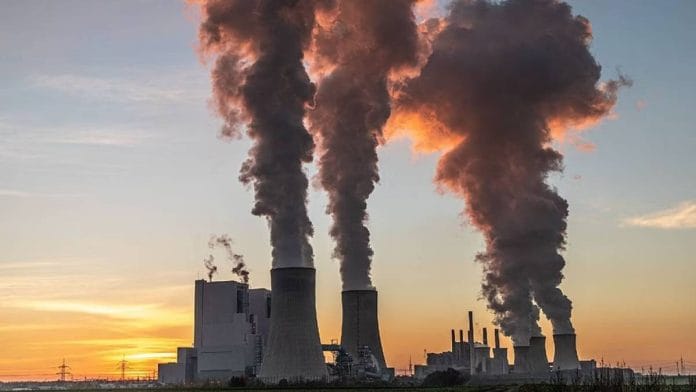MIT Technology Review Insights’ Green Future Index 2023 shows that although developing economies score lower overall, these communities work hard to achieve climate goals.
For sustainability efforts, wealth matters: per-capita GDP correlates with a country’s ability to define its low-carbon future. Disparities in wealth, technology, and expertise limit progress around carbon removal, sustainable development, and clean power generation.
For the past three years, the MIT Technology Review Insights team has ranked 76 nations and territories on development of a sustainable future. This research project—the Green Future Index (GFI)—is based on qualitative interviews with global experts as well as data from 23 indicators from five pillars:
- Carbon emissions: Emissions relative to GDP, and the progress made to decrease them.
- Energy transition: The growth of renewable and clean energy generation.
- Green society: How government, people, and business promote sustainability.
- Clean innovation: Investment and invention in green, global solutions.
- Climate policy: Political ambition of government creating effective green frameworks.
Roughly half the “Green Leaders” of the GFI 2023—the top 20 for overall scores, all advanced economies and overwhelmingly Western—saw scores soften from 2022. But some nations are pushing against this trend: 15 of the 35 countries that improved their overall GFI 2023 scores were also among the poorest.
For emerging economies, there is no lack of will where sustainability is concerned. Even in the lowest-scoring GFI category, “Climate Abstainers” (ranking from 61st place to 76th place overall), there are sustainability aspirations. For example, Peru (62nd place overall) and Malaysia (68th place overall) are among several emerging economies building voluntary carbon markets (VCMs) to support their goal of achieving net-zero greenhouse gases by 2050.
Weak GFI 2023 scores for emerging economies often point to economic over-reliance on fossil fuel production or natural resource extraction. Most GFI “Climate Laggards” (ranking between 41st and 60th place) are burdened by carbon-intensive industries like cement, mining, chemicals, and fossil fuel. For example, Sub-Saharan Africa holds 40% of the world’s newest natural gas reserves, which will undoubtedly offer economic opportunity. However, emerging nations need that income to meet basic living requirements and spur development, which has priority over decarbonization efforts.
Leading by example in Argentina and Indonesia
Developing nations can and do lead. Argentina and Indonesia led the GFI 2023 in overall score increases, moving 20 and 21 places respectively, placing them in 48th and 49th place.
In September 2022, Argentina launched its National Sustainable Transportation Plan. The nation will convert diesel vehicles to locally plentiful natural gas, and incentivize electric vehicles. The plan also aims to improve gender and intergenerational equality, natural resource preservation, economic growth, and waste reduction.
Indonesia resumed a climate financing deal with Norway in October 2022, which disbursed $56 million to fund tropical forest preservation, to create a carbon sink by 2030. As the world’s third-largest coal producing country and an extractive industry-intensive economy, Indonesia is also combatting coal dependency to meet decarbonization goals. One of its efforts is building “the world’s largest green industrial park” in North Sumatra. It will take 10 to 15 years to build, and will use hydropower when operational.
Building better economies
In 2022, China and India led the world in LEED-certified projects globally to create green cities—China with 16 million square meters of LEED-certified built space and India with 10.4 million square meters. LEED is the most common green building standard globally. Other markets embracing LEED include Brazil, Mexico, and the Philippines.
Morocco is 36th place on the GFI 2023 climate policy pillar (and 37th overall), the top-ranked African nation. With global partners, it is developing clean energy transition and clean tech manufacturing, particularly wind energy. This means close to $300 million for Morocco since 2003, making it the second-largest climate financing destination in the Middle East and North Africa.
Developing economy bright spots
These developing countries show how emerging nations can lead by example:
- Angola ranked second place in the GFI carbon emissions, bolstered by its National Strategy on Climate Change, to transition to a low-carbon economy by 2035.
- Vietnam is using a $15.5 billion pledge from the G7 to source 47% of its electricity from renewables.
- Zambia and the World Wide Fund for Nature created a debt-for-nature swap, with up to $1 billion in cheaper financing for environmental protection guarantees.
- Colombia launched an emergency plan to stop Amazon deforestation, working with Indigenous groups and local communities.
- Nigeria and the Clean Air Task Force are building carbon management solutions for its energy-intensive cement and fertilizer industries.Kazakhstan has a partnership with the EU to promote sustainable value chains for raw materials, renewable hydrogen, and batteries.
The world’s responses to survive climate change, and adapt to its eventual outcomes, are dynamic. Governments and societies must continue to decarbonize as fast as possible. They must also continue to experiment with a vast array of technologies, business practices, and societal approaches. As the GFI 2023 illustrates, the world’s ability and resources to do so are not equally distributed.






